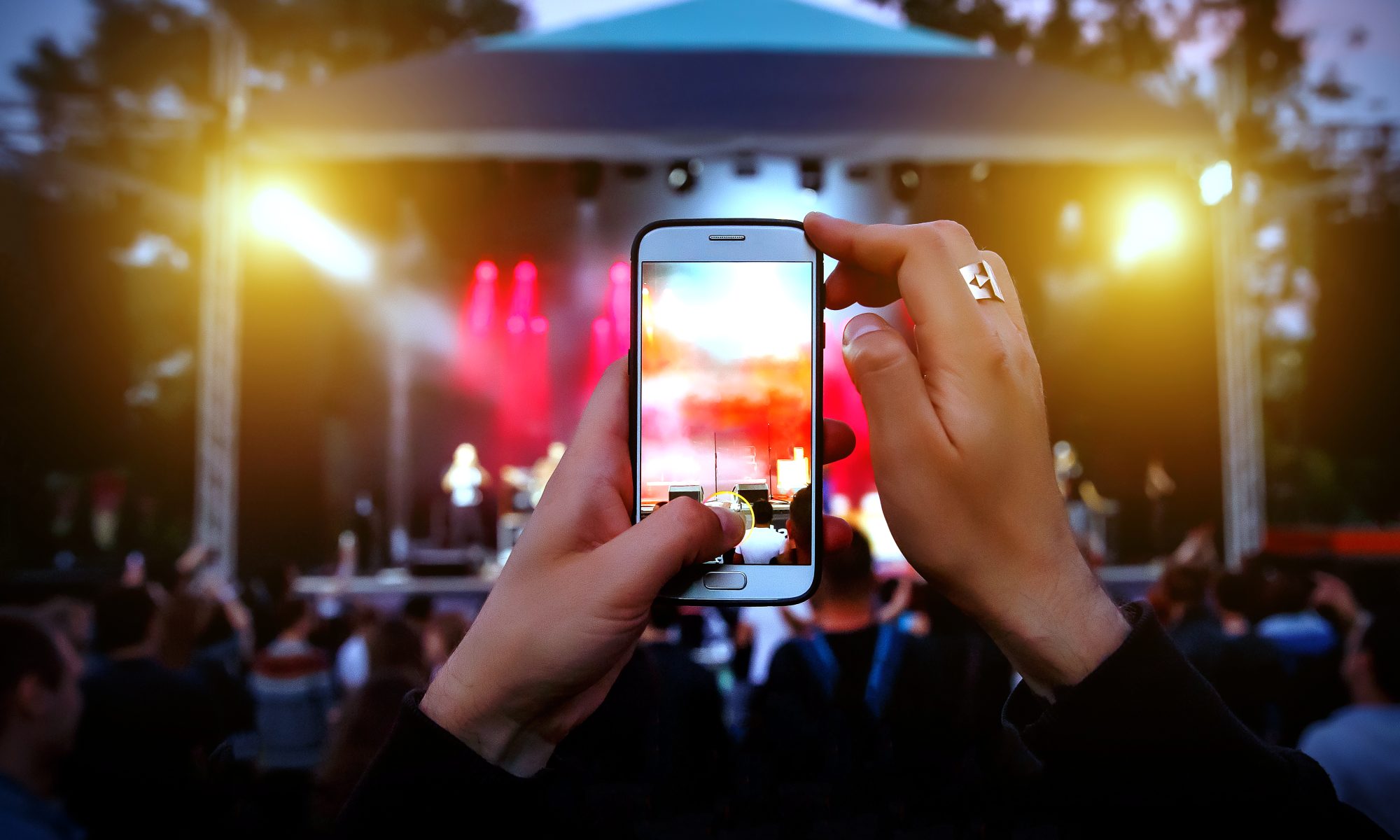Planning an outstanding event with great speakers and perfect venues means nothing if people don’t know about it.
Many event organisers discover this reality when registration numbers fall short of expectations, despite having excellent content and logistics in place.
The gap between successful and struggling events often comes down to promotional strategy and execution. While some events effortlessly reach capacity, others with similar quality struggle to attract attendees.
The difference lies in understanding how to communicate your event’s value effectively and reach the right people through the right channels.
This guide reveals practical techniques that consistently drive event registration and attendance.
You’ll learn how to create promotional campaigns that resonate with your target audience, use digital marketing platforms effectively, and build genuine excitement that converts interest into confirmed attendance. These strategies work across different event types and industries.
Whether you’re organising corporate conferences, trade shows, networking events, or exhibitions, these promotional approaches will help you reach your attendance goals and create events that people actively want to attend.
Need stronger turnout and engagement? Innovation Dynamics delivers expert event management and promotion that gets results.
Understanding the Foundation of Successful Event Promotion
Building effective event promotion starts with understanding your audience and setting clear promotional objectives. Getting these fundamentals right makes all promotional activities more effective and targeted.
Successful event promotion requires strategic planning rather than random marketing activities. Many organisers focus on tactics without establishing proper foundations, which leads to ineffective campaigns and disappointing results.
The foundation of effective event promotion includes several critical elements:
- Define Clear Event Goals and Success Metrics: Establish specific objectives like target attendance numbers, registration deadlines, and engagement levels. These goals should align with broader business objectives and provide measurable targets for your promotional efforts.
- Identify Your Target Audience Demographics: Understand who you’re trying to reach, including their professional backgrounds, interests, preferred communication channels, and decision-making processes. This knowledge shapes every aspect of your promotional strategy.
- Establish Your Event Value Proposition: Clearly articulate what attendees will gain from your event, whether it’s networking opportunities, educational content, industry insights, or professional development. This becomes the core message of all promotional materials.
- Set Realistic Promotional Timeline and Budget: Plan your promotional activities across an appropriate timeframe, typically starting 8-12 weeks before the event. Allocate budget across different channels based on their effectiveness for your target audience.
- Choose Appropriate Promotional Channels: Select marketing channels that reach your audience most effectively, considering factors like age demographics, professional level, industry preferences, and geographic location. Different audiences respond better to different promotional approaches.
- Create Consistent Messaging Across All Platforms: Develop key messages that remain consistent across all promotional materials while adapting the format and tone for different channels. This builds recognition and reinforces your event’s value proposition.
This foundational work ensures that all subsequent promotional activities are targeted, consistent, and effective.
Without proper planning, even the most creative promotional campaigns can miss their mark and fail to generate the desired attendance levels.
ALSO READ:
→ Virtual Event Best Practices for Dubai-Based Hosts
→ What Makes a Truly Successful Event Planner?
→ Common Event Planning Mistakes and How to Avoid Them
→ Proven Strategies for Managing Last-Minute Event Changes
→ Unique Event Theme Ideas That Wow Your Guests
Proven Digital Marketing Strategies for Event Promotion
Digital marketing has become the cornerstone of effective event promotion, offering precise targeting and measurable results.
The following strategies consistently drive event registration and engagement across different industries and event types.
1. Email Marketing Excellence
- Segmented Email Campaigns: Divide your email list based on demographics, past attendance, and interests to send targeted messages. Segmented campaigns consistently outperform generic broadcasts and deliver higher registration rates.
- Automated Email Sequences: Set up automated email series that nurture prospects from initial awareness through registration and attendance. These sequences can include announcement emails, reminder messages, and post-registration communications.
- Compelling Subject Lines and Content: Create subject lines that grab attention while clearly communicating value. Personalised subject lines and urgency-driven language can significantly improve open rates and click-through performance.
2. Social Media Promotional Strategies
- Platform-Specific Content Creation: Tailor content for each social platform’s audience and format requirements. LinkedIn works best for B2B events, while Instagram and Facebook are more effective for consumer-focused events.
- Event Hashtag Development: Create unique, memorable hashtags that attendees can use to share content and build community around your event. Successful hashtags are short, easy to spell, and directly related to your event theme.
- Interactive Social Media Campaigns: Launch contests, polls, and user-generated content campaigns that encourage sharing and engagement. These activities increase visibility while building excitement around your event.
3. Search Engine Optimisation and Advertising
- Event Landing Page Optimisation: Create dedicated landing pages optimised for search engines and conversions. Include clear event details, compelling calls-to-action, and mobile-friendly design for better user experience.
- Targeted Pay-Per-Click Advertising: Use Google Ads and social media advertising to reach specific audiences based on interests, location, and demographics. These campaigns can drive immediate traffic and registrations when properly targeted.
- Content Marketing and SEO: Develop blog posts, speaker interviews, and industry-related content that attracts your target audience through search engines. This builds awareness while positioning your event as authoritative and valuable.
These digital strategies work best when implemented together as part of a coordinated campaign rather than as isolated activities.
The key is matching the right strategy to your audience’s preferences and behaviour patterns.
ALSO READ:
→ Elegant Wedding Venues in Dubai That Leave a Lasting Impression
→ Interactive Activities That Make Events Unforgettable
→ How to Keep Attendees Engaged – Online or In-Person
→ Planning a Wedding in Dubai? Follow These Key Steps
→ How to Choose the Right Catering Partner for Your Dubai Event
Creative Promotional Tactics That Drive Event Attendance
Beyond traditional marketing approaches, creative promotional tactics can significantly increase event visibility and registration rates.
These innovative strategies help events stand out in crowded marketplaces and capture attention effectively.
1. Early Bird and Pricing Strategies
- Limited-Time Early Bird Discounts: Offer substantial discounts for early registrations with clear deadlines to create urgency. These promotions encourage immediate action while helping you gauge interest levels early in your promotional timeline.
- Tiered Pricing and Exclusive Access: Create different ticket levels that offer varying benefits, from general admission to VIP experiences with exclusive networking opportunities. This appeals to different budget levels while increasing overall revenue.
- Group Registration Incentives: Provide discounts for team registrations or multiple attendees from the same organisation. This strategy increases attendance numbers while making the event more accessible to budget-conscious organisations.
2. Partnership and Influencer Collaborations
- Strategic Partner Cross-Promotion: Collaborate with industry associations, complementary businesses, and sponsors to promote your event through their channels. This expands your reach to qualified audiences who trust these organisations.
- Industry Influencer Engagement: Partner with respected industry figures who can promote your event to their followers. Choose influencers whose audience aligns with your target demographic for maximum impact.
- Speaker-Led Promotional Activities: Encourage speakers to promote their participation through their networks, social media, and professional contacts. Speakers often have established audiences interested in their expertise.
3. Interactive and Engaging Content
- Behind-the-Scenes Content Creation: Share planning updates, venue preparations, and speaker preparations to build anticipation and demonstrate the effort going into creating a valuable experience.
- Interactive Countdown Campaigns: Use countdown timers on your website and social media to build urgency and remind people of approaching deadlines. Visual countdowns create psychological pressure that encourages immediate action.
- Preview and Teaser Content: Release small portions of event content, speaker interviews, or agenda highlights to give potential attendees a taste of what they’ll experience. This builds excitement while demonstrating value.
4. Alternative Promotional Channels
- Podcast and Webinar Appearances: Arrange for event organisers or speakers to appear on industry podcasts and webinars to discuss event topics and promote attendance. This reaches engaged audiences interested in your subject matter.
- Direct Mail for High-Value Prospects: Use targeted direct mail for VIP prospects or past attendees, particularly for high-value corporate events where personal touch matters. Physical mail often receives more attention than digital communications.
- Local Media and PR Opportunities: Pitch your event story to local business publications, industry magazines, and relevant media outlets. Media coverage provides third-party credibility that enhances your event’s reputation.
These creative tactics work best when aligned with your audience’s preferences and combined with proven digital strategies.
The goal is creating multiple touchpoints that reinforce your event’s value and encourage registration.
ALSO READ:
→ How to Keep Safety and Security Front and Centre at Events
→ Stunning Outdoor Locations in Dubai for Your Next Event
→ Best Corporate Event Venues to Book in Dubai
→ Your Complete Guide to Event Marketing in Dubai
→ Hybrid Events: Key Benefits for Better Reach and Results
Measuring and Optimising Your Event Promotional Efforts
Effective measurement and optimisation ensure your promotional activities deliver maximum return on investment and attendance results.
Understanding key metrics and improvement strategies drives ongoing promotional success and better results.
Without proper measurement, promotional efforts become guesswork rather than strategic investment.
Successful event organisers track specific metrics and adjust their strategies based on data-driven insights rather than assumptions.
Here are the essential measurement and optimisation practices for event promotion success:
- Track Registration Conversion Rates: Monitor how many website visitors register for your event across different traffic sources. This helps identify which promotional channels deliver the highest-quality prospects and best conversion rates.
- Monitor Email Marketing Performance: Track open rates, click-through rates, and registration conversions from email campaigns. Focus on trends over time rather than individual campaign performance to identify improvement opportunities.
- Measure Social Media Engagement: Track likes, shares, comments, and click-throughs from social media posts. High engagement indicates content resonates with your audience, while reach shows promotional message visibility.
- Calculate Cost Per Registration by Channel: Determine how much each promotional channel costs per registration to identify the most cost-effective strategies. This data guides future budget allocation and channel selection decisions.
- Test Different Messages and Content: A/B test subject lines, call-to-action buttons, images, and messaging to identify what resonates best with your audience. Small improvements in conversion rates can significantly impact overall attendance.
- Adjust Promotional Timeline Based on Data: Analyse when registrations occur most frequently and adjust your promotional calendar accordingly. Some audiences respond better to early promotion, while others register closer to event dates.
- Reallocate Budget to High-Performing Channels: Regularly review which promotional channels deliver the best results and shift budget toward high-performing activities. Stop or reduce investment in channels that don’t generate sufficient registrations.
- Collect Attendee Feedback on Discovery Methods: Survey attendees to understand how they learned about your event and what convinced them to register. This qualitative data complements quantitative metrics and reveals promotional gaps.
- Analyse Complete ROI for Each Channel: Calculate return on investment for each promotional activity by comparing costs to revenue generated through registrations. This analysis guides future promotional budget allocation.
- Document Successful Strategies for Future Use: Create detailed records of what worked well and what didn’t for future reference. This institutional knowledge prevents repeating mistakes and builds on successful approaches.
These measurement and optimisation practices ensure continuous improvement in promotional effectiveness.
Regular analysis and adjustment turn promotional campaigns into increasingly powerful tools for driving event attendance and success.
ALSO READ:
→ Smart Tips to Plan Events That Run Smoothly
→ Budget-Friendly Ways to Host Memorable Events in Dubai
→ Creative Corporate Event Ideas Any Company Can Use
→ Why Outsourcing Event Management Makes Sense
→ Event Production Trends Every Planner Should Watch
Conclusion – Effective Event Promotion Tips
Effective event promotion combines strategic planning, creative execution, and continuous optimisation to achieve outstanding attendance and engagement results.
The strategies outlined in this guide provide a comprehensive framework for promoting events successfully across different industries and audience types.
Strategic promotional approaches deliver measurable results when implemented consistently and thoughtfully.
The key is understanding that successful event promotion is not about using every available channel, but rather about selecting the right strategies for your specific audience and executing them well.
Success requires starting with solid foundational planning, including clear goals, audience understanding, and strategic channel selection.
Digital marketing strategies provide the backbone of modern event promotion, while creative tactics help events stand out and generate excitement. Most importantly, measuring and optimising promotional efforts ensures continuous improvement and better results over time.
The most successful organisers focus on mastering a few key promotional approaches rather than spreading their efforts too thin across multiple tactics.
They understand their audience deeply, communicate value clearly, and adjust their strategies based on actual performance data rather than assumptions.
At Innovation Dynamics, our experienced team has developed and refined promotional strategies across hundreds of successful events throughout the Middle East, Europe, and Asia.
We understand how to combine traditional promotional approaches with modern digital strategies to achieve exceptional attendance and engagement results for our clients.
Partner with Innovation Dynamics to turn your next event into a high-impact, goal-reaching experience.





















